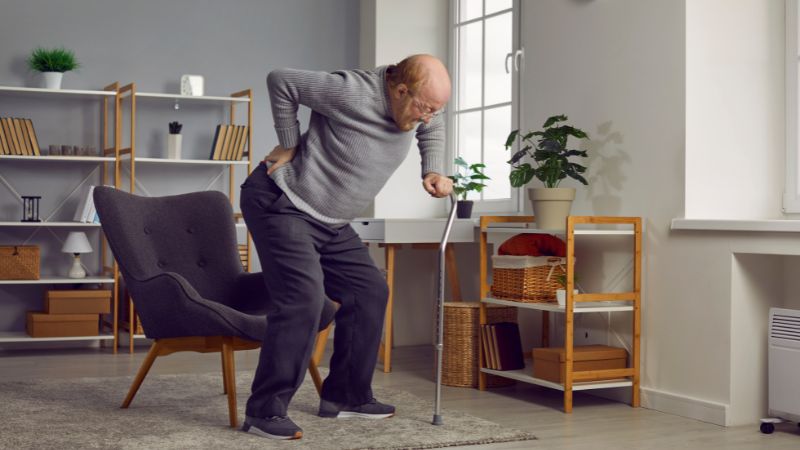
An occasional loss of appetite is a normal part of the aging process. Caregivers should be concerned when seniors experience extreme weight loss or refuse to eat. Malnutrition is an adverse outcome of poor food choices or not eating at all. Here are ways to boost the appetites of seniors.
What causes a loss of appetite?
Physiological changes in the aging body are responsible for a decrease in appetite. Older people have a lower metabolic rate as well as decreased muscle mass. Seniors are also generally less active as they age, so they may not consume extra calories.
Gastrointestinal changes, such as developing lactose intolerance, can make eating meals uncomfortable. Dental problems also affect eating. Dry mouth, for instance, may be caused by medications, anxiety, or smoking tobacco. Chewing difficulty is a result of tooth loss, loose teeth, and tooth decay.
Seniors often experience diminished senses, especially that of taste and smell, which are linked by the same receptors in the taste buds. Impaired taste can occur, and this leads to a metallic taste in the mouth. About 75 percent of people over the age of 80 experience reduced taste.
Difficulty swallowing (dysphagia) is concerning when it persists over a prolonged period of time. Symptoms of dysphagia include having difficulty swallowing food, having to swallow multiple times even for small amounts of food, and choking or coughing while swallowing food.
Seniors who are physically challenged and who live alone can find it difficult to cook. An inability to prepare meals will hinder regular meal consumption. Discomfort or confusion around mealtimes can also occur when changes to the senior’s routines are disrupted.
How to Boost Appetite for Seniors?
Establish an Eating Routine
Caregivers can prevent the frustrations surrounding mealtimes and stimulate healthy eating. One way to achieve this goal is to establish meal schedules. Serve breakfast, lunch, dinner, and snacks at the same times daily. A regular eating schedule of five to six small meals promotes better digestion.
 Serve Appetizing Meals
Serve Appetizing Meals
Serving a variety of appetizing meals helps seniors look forward to eating. Small portions of bright, colorful foods rich with nutrients are best. Avoid piling too much food onto the plate, as heaps of food can overwhelm the senior and prevent eating altogether.
Caregivers can prepare new versions of seniors’ favorite foods or try new dishes. Avocado toast with egg is packed with essential macronutrients, like protein and carbohydrates. High-calorie breakfasts, like banana pancakes, are ideal for seniors with a decreased appetite; top with almond butter for extra, flavorful calories.
Prepare smoothies with fruits or vegetables. Smoothies are easy for seniors to consume and allow them to reach their daily calorie and nutrient goals with minimum effort. Yogurt parfaits are a healthy snack and provide the essential calcium and protein needed to improve bone health.
Provide Good Hydration
Hydration is equally important for improving appetite. Ensure the senior is adequately hydrated with beverages, such as water or protein shakes. Dehydration can worsen appetite, decrease nutrient absorption, and impede good digestion. Plus, drinking calories is easier for some seniors.
 Choose Nutrient-Dense Foods
Choose Nutrient-Dense Foods
Nutrient-dense foods, like peanut butter, avocados, and olive oil, are loaded with the essential vitamins and minerals, even in small amounts. Select nutrient-rich foods, which allow seniors to consume smaller portion sizes, yet benefit from the vitamins, minerals, and calories.
To learn about which vitamins provide beneficial nutrition to the elderly and how to integrate them in a meal, reference the Beneficial Vitamins for Seniors blog.
Encourage Exercise
Physical activity boosts the body’s need for energy, which, in turn, stimulates appetite. Seniors who exercise regularly are more likely to have a healthy appetite. Encourage daily exercises, such as walking or swimming. Activities, like climbing stairs or performing chores, can also stimulate a senior’s appetite.
Provide Companionship
Loneliness, depression, and isolation can deter a senior from eating. Caregivers who encourage social eating may see improvement in the senior’s appetite. Opportunities for social meals may be found in local senior centers, places of worship, community centers and with professional caregivers.
Assist with Meal Preparation
Seniors who are unable to cook, whether due to cognitive or physical limitations, will benefit from the assistance of caregivers. Professional caregivers, for instance, shop for fresh groceries and prepare balanced meals, thereby ensuring the senior has access to nutritious dishes daily.
 Make Mealtimes Enjoyable
Make Mealtimes Enjoyable
Create an enjoyable mealtime atmosphere by playing soothing music during dinners or watching a favorite television show while eating or cooking. Set the table using the senior’s favorite place settings. Experiment with different sized plates to determine which work best.
Address Impediments to Eating
Seniors who are immobile may utilize a grocery food delivery service for food delivery; alternately, families can hire a professional caregiver to shop for and prepare foods. Ensure dentures fit correctly to avoid discomfort while eating. Use adaptive utensils if the senior has joint pain.
A healthy appetite is important to ensuring the senior receives the recommended daily doses of vitamins and minerals. When your elderly loved one struggles with appetite, a professional caregiver from Assisting Hands Home Care will provide invaluable in-home senior care.
Our home care agency is staffed with a team of professional caregivers who are skilled in delivering comprehensive, nonmedical care services. We provide assistance with personal hygiene tasks, shop for groceries, prepare balanced meals, give medication reminders, and serve as excellent companions.
Care options are flexible and varied. Assisting Hands Home Care is available for 24-hour home care as well as live-in care. The former option ensures the senior is monitored continuously throughout the day and night, while the latter includes a sleeping break for the caregiver.
Home care is critical for seniors who live alone or who have returned from a hospital stay. Furthermore, the majority of older people prefer to age in place, and the high-quality elder care from Assisting Hands Home Care makes remaining at home a practical reality.
Choose Assisting Hands Home Care for all your elderly loved one’s nonmedical care needs. Our caregivers are licensed, bonded, and insured to give families peace of mind. Contact our Batavia, Aurora, Bartlett, Geneva, St Charlette, Illinois locations at (630) 332-2203 to schedule an in-home consultation and start dependable elder care today.














